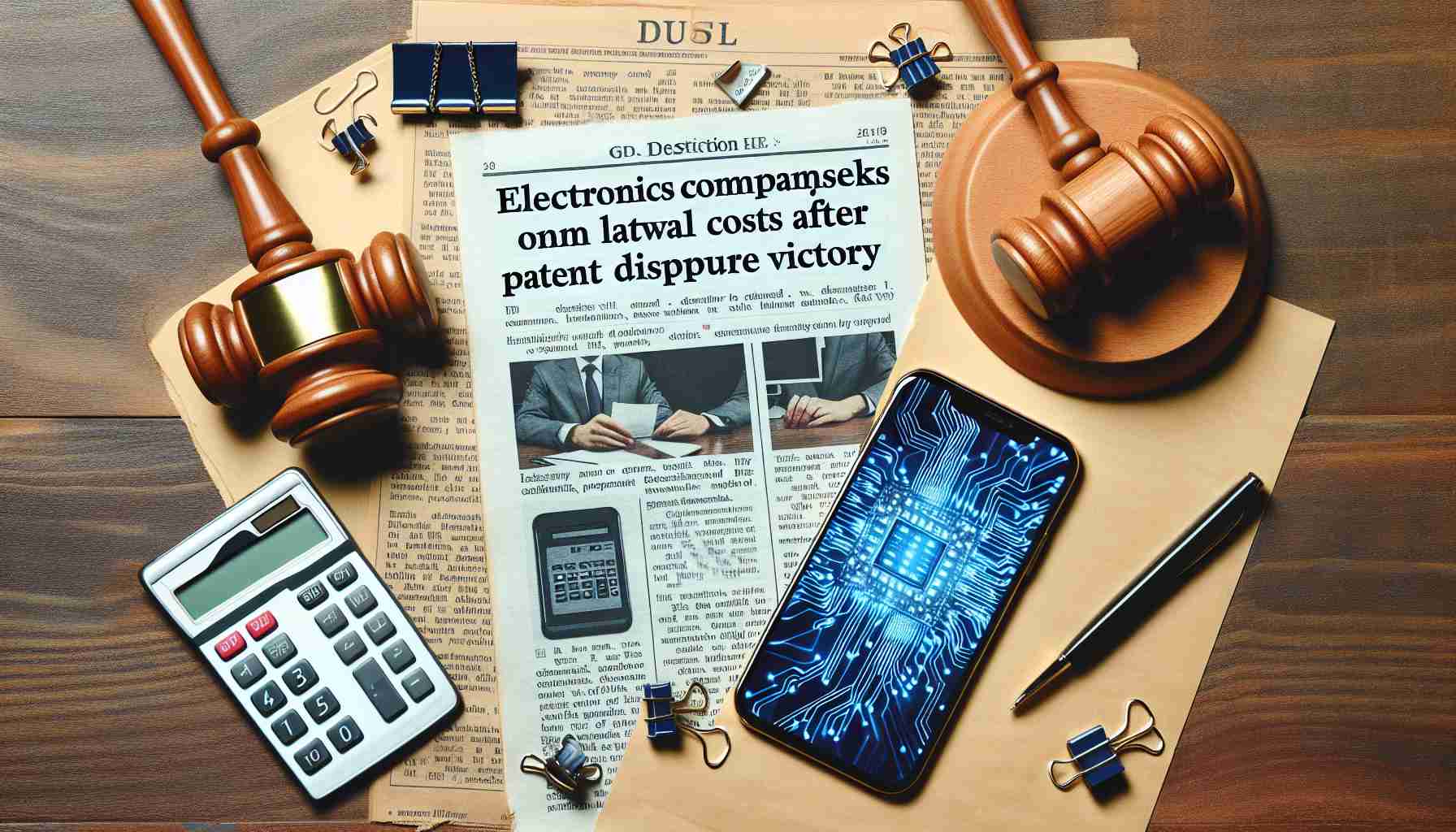Samsung has approached the legal system for a reimbursement of its legal expenses, amounting to $6.7 million. The tech giant is seeking compensation following their successful defense against a staggering $4 billion patent infringement lawsuit.
After a closely-watched legal battle, Samsung emerged victorious against claims of infringing upon two semiconductor patents. The company highlighted that their opponent’s conduct throughout the litigation process was highly inappropriate, a claim they backed vigorously in their motion for attorneys’ fees. The details of Samsung’s arguments were disclosed to the public when the motion documents were recently unsealed.
The case was presided over by U.S. District Judge Alan Albright, who has now been formally asked by Samsung to approve their request for recoupment of legal costs. In a strategic legal move, Samsung aims to leverage allegations of the plaintiff’s exceptional misconduct to justify this significant sum for attorneys’ fees.
With the verdict in Samsung’s favor, this latest development could set a precedent for the repercussions that may follow a lawsuit deemed to have been conducted with questionable legal practices. It also underscores the high stakes involved in patent infringement disputes within the highly competitive and lucrative field of semiconductor technology.
Relevant Additional Facts:
– Patent disputes in the tech industry are not uncommon, and Samsung has been involved in numerous such cases over the years, including high-profile battles with competitors like Apple.
– The cost of patent litigation can be substantial, often running into the millions of dollars, which can be a significant financial strain even for large corporations.
– Recovering legal fees is relatively rare in U.S. patent disputes, particularly because the American Rule usually requires each party to pay its own legal fees regardless of the outcome.
Key Questions and Answers:
– Why is Samsung seeking compensation for legal costs?
Samsung is seeking reimbursement for their legal expenses because they believe the lawsuit was unfounded and that the plaintiff engaged in exceptional misconduct during the litigation process.
– How often are legal fees reimbursed in patent disputes?
It is relatively rare for the losing party in patent litigation in the United States to be ordered to pay the winning party’s legal fees, but this can happen in cases where the court determines there was exceptional misconduct or that the case was particularly frivolous.
– What was the basis of the lawsuit against Samsung?
Samsung was accused of infringing upon two semiconductor patents, but ultimately the court found in their favor, suggesting that the claims lacked merit.
Challenges or Controversies:
– A major challenge in patent disputes is proving whether an infringement has taken place, especially in complex fields like semiconductor technology.
– Another controversy centers around the use of patent litigation as a competitive tactic, sometimes referred to as ‘patent trolling,’ where entities file suits to pressure or hinder competitors.
Advantages and Disadvantages of Samsung’s Motion for Legal Costs:
– Advantages:
– If successful, the reimbursement would offset the significant costs incurred by Samsung in defending against the lawsuit.
– It could deter future frivolous or malicious lawsuits against Samsung or others in the industry.
– Disadvantages:
– Pursuing compensation for legal costs could prolong the legal battle and public scrutiny.
– If unsuccessful, Samsung could be viewed negatively, potentially impacting its public image.
For more information on corporate and legal news about Samsung and the technology industry, you can visit Samsung’s official website. Please keep in mind that as an AI, I can’t browse the internet in real-time. Therefore, always verify the current validity of the URL provided.
